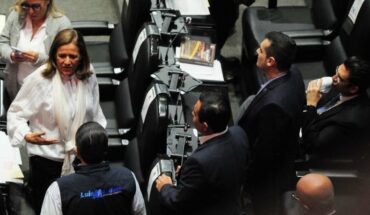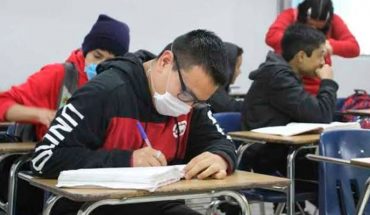Celeste Ramírez, head of the Production and Management division of Educational Content and Multimedia Development of the Education Council of Entre Ríos, was responsible for the Learning portal and the publication of the contents of that space. But in the last few hours she was removed from office, after a video of a children’s story intended for kindergarten children called “The Gorilla Gorilla” went viral. The story has as its protagonist this animal which, “always had everything” and gets angry when someone gets a help: “If you want it, let him win it himself,” says the ape. He then tells a punctual story of a queen bee offering food to another bee until he recovers and can fly again. “That’s not right, ” complains the gorilla. And so different examples are happening with other animals that end with the same conclusion. Until one day, already at the end of the tale that lasts three minutes, the gorilla gets sick, to such an extent that he does not have the strength to look for bananas. Both the bee, the ant and the birds help him. He thanks them for what they say: “Don’t worry. Well-being is achieved between everyone.” Ends.
This story audio was made by local writer Matías Finucci Curi. And the General Council of Education (CGE) of Entre Ríos shared the video on its networks on October 29.
After the impact of the material, a group of deputies for the radical party denounced the content and therefore after a review removed the story from the web.
From the educational portfolio they indicated that they work “for inclusive, equal and quality education”.
For their part, the authorities of Entre Ríos explained: “Just as from the educational community we pointed out and criticized the clear gesture of indoctrination that meant when in 2016 former President Mauricio Macri made repeat to children of a school in Rosario his campaign slogan “Yes you can”, we also disapproved of the publication of this content that was clearly not sufficiently reviewed by the instances of pedagogical analysis and which was immediately corrected” , they pointed out from the Ministry of Internean Education.
Through an official statement, the authorities confirmed their commitment to “avoid situations that may be offensive to members of a particular thought community” and ensured that “there is and will not be any attempt at indoctrination in Entre Ríos in any way as is to be installed through disproportionate criticism.”
“The province of Entre Ríos maintains a firm commitment to quality education, respectful of differences and advocated for freedom of thought. The main objective is to build pedagogical areas without prejudice or discrimination of any kind, in which children and young women can elaborate their thoughts autonomously,” they explained in the communiqué.
In addition to the audio story in the presentation there was a legend that explained: “From this story we seek to question some certainties that end up covering up the impacts that inequalities of origin have on people’s lives.”
And in the same line he continued: “Individualism and meritocracy (i.e., personal merit as the main criterion used to explain a person’s place) are two fundamental pillars for the sustainability of social inequality. From a gender and human rights perspective, slogans that are socially naturalized and that prevent many people from enjoying human rights (“the poor are poor because they want to” can be developed; “something will have been done to be where it is” or “with effort and sacrifice everything is achieved” are some examples).” And it was followed by some questions that invited us to analyze the content of the story. “Is there really equal opportunities? Do all people enjoy the same conditions and possibilities (cultural, economic, containment, social) to access the various goods and rights?” These were some of the questions that concluded with the educational activity.





